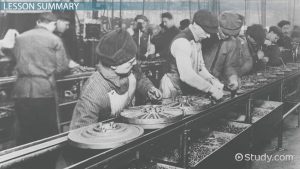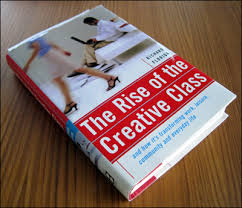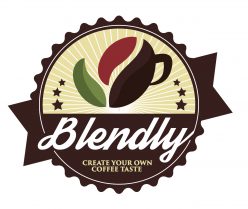Since the birth of Starbucks, the coffee industry has not changed in hundreds of

years. Coffee is the subject of a level of consumer demand that has allowed retail outlets to show strong resilience in the face of the current economic conditions.
Coffee across the world continues to represent significant growth. Apart from the continued growth of coffee demand in coffee-growing countries, there is also the movement towards the evolution and re-emergence of “coffee culture” in many parts of the world – most notably, the Middle East, Africa, and Asia, most especially in Japan and Korea.
 While traditional brands are looking to grab more of the global industry for themselves, based on traditional methods of scale – with a movement towards mergers between large coffee manufacturers and roasters.
While traditional brands are looking to grab more of the global industry for themselves, based on traditional methods of scale – with a movement towards mergers between large coffee manufacturers and roasters.
Mergers such as A new giant in the coffee industry will be created after Douwe Egberts maker DE Master Blenders have merged with Mondelez’s coffee business. Back in 2014 saw the formation it was reported to be the formation of the world’s second-largest coffee company after DE Master Blenders agreed to hand US-based Mondelez $5bn (£2.9bn) in cash and a 49pc stake in the combined company.
And more recently Matthew Algie, the Glasgow-based coffee roaster, has been acquired by the family-owned Tchibo, a German food business. Tchibo said the acquisition will help it grow its coffee service operations in the UK. It was attracted by the 152-year-old Glasgow firm’s ethical trading, training operations and technical customer support.
It said there is an opportunity to grow Matthew Algie’s Espresso Warehouse brand, potentially across Europe.
These traditional methods of scale are in contrast to an industry were curiosity for the “science” of coffee-making— is growing improving grinding methods, better monitoring of water quality. However, a movement within the industry is also seeing Innovation, as more micro rosters and artisan products are being developed away from the mass production and mergers – based on greater customer choice and transparency.
With roasting technology providing a less competitive advantage and an industry  that in entrenched in the economics of scale, its ability to grasp the advantages of economies of choice, is being met by new types of organisations that are offering more transparent services.
that in entrenched in the economics of scale, its ability to grasp the advantages of economies of choice, is being met by new types of organisations that are offering more transparent services.
These companies are also able to develop and integrate new types of services around the process of coffee and develop relationships with new actors within the traditional supply chains. As the information regarding the development of products in terms of commodity makeup, pricing, roasting losses and expected production yields are known within the public domain.
Making it possible to decentralise the information required to develop products and markets and allow more people with a base knowledge of commodity and customer to form new relationships between the farmers and customers. And make better use of the data and information around them to create more value, It’s the availability of this information in the hands of new types of organisation that perhaps offer the greatest opportunity within coffee industry.
We have seen other industries transform when data and information on processes and people are decentralised and become understood and made available to everyone, with examples of how Uber changed how we look at transportation, and Airbnb changed how we look at accommodation. Perhaps it won’t be long before coffee – see the same transformation.



 etter understanding of taste and cost, – Today’s coffee customer understand more about the coffee and the Baristas that serve it
etter understanding of taste and cost, – Today’s coffee customer understand more about the coffee and the Baristas that serve it services and can advise the new type of Speciality coffee chain on cost and taste, – Blendly Services have been developed around the economies of choice allowing greater transparency around the coffee offering
services and can advise the new type of Speciality coffee chain on cost and taste, – Blendly Services have been developed around the economies of choice allowing greater transparency around the coffee offering
 Kelvingrove Art Gallery and Museum houses one of Europe’s great art collections. It is amongst the top three free-to-enter visitor attractions in Scotland and one of the most visited museums in the United Kingdom outside of London.
Kelvingrove Art Gallery and Museum houses one of Europe’s great art collections. It is amongst the top three free-to-enter visitor attractions in Scotland and one of the most visited museums in the United Kingdom outside of London.


 difference lies in our genetic composition, especially within our sensory receptors. It means that the coffee you serve is a determination of as much the environment as it is blend. Letting your customers understand what is in the blend allows your customer to better associate your and your brand
difference lies in our genetic composition, especially within our sensory receptors. It means that the coffee you serve is a determination of as much the environment as it is blend. Letting your customers understand what is in the blend allows your customer to better associate your and your brand Working with Blendly you can engineer a taste that suits you or your customer all our blends are loved by many and offer a great starting point all coffee drinkers but remember how we taste coffee and what we taste is different to each individual and the taste of the product in Unique to them
Working with Blendly you can engineer a taste that suits you or your customer all our blends are loved by many and offer a great starting point all coffee drinkers but remember how we taste coffee and what we taste is different to each individual and the taste of the product in Unique to them with a lauadge that customers associated with the you delivering the best coffee in the world.
with a lauadge that customers associated with the you delivering the best coffee in the world.

 the types of freelancers and creative class workers we find in places like The Proud East today.
the types of freelancers and creative class workers we find in places like The Proud East today. Coffee brewing instructions from CHEMEX
Coffee brewing instructions from CHEMEX Step 1: Get into the grind
Step 1: Get into the grind cone has three layers, and place it into the top of the CHEMEX® brewer. The thick (three-layer) portion should cover the pouring spout.
cone has three layers, and place it into the top of the CHEMEX® brewer. The thick (three-layer) portion should cover the pouring spout. cone. Feel free to use more if you prefer it stronger; our CHEMEX® brewing process eliminates bitterness.
cone. Feel free to use more if you prefer it stronger; our CHEMEX® brewing process eliminates bitterness. from the heat and allow it to stop boiling vigorously.
from the heat and allow it to stop boiling vigorously.

 indulge in the flavour.
indulge in the flavour. either a glass stove top or gas flame both at low heat. If you have an electric coil stove top, you must utilize the CHEMEX® stainless steel wire grid (TKG) in between the CHEMEX® and the coils to prevent breakage. Be sure that there is a small amount of liquid in the carafe before placing it on a warm heating element.
either a glass stove top or gas flame both at low heat. If you have an electric coil stove top, you must utilize the CHEMEX® stainless steel wire grid (TKG) in between the CHEMEX® and the coils to prevent breakage. Be sure that there is a small amount of liquid in the carafe before placing it on a warm heating element. service. Remove the wooden handle and continue to hand wash with warm soap and water, or place the coffeemaker securely in the dishwasher.
service. Remove the wooden handle and continue to hand wash with warm soap and water, or place the coffeemaker securely in the dishwasher. coffeemaker. Our CHEMEX® 2-Quart Water Kettle achieves the perfect brewing temperature with functional elegance. Made from heavy-walled heat-resistant glass, our flat-bottomed kettle will ensure a delightful boiling and brewing process. The unique silicone stopper keeps the brewed water at peak temperature while venting steam, so the neck stays cool to the touch for safe handling.
coffeemaker. Our CHEMEX® 2-Quart Water Kettle achieves the perfect brewing temperature with functional elegance. Made from heavy-walled heat-resistant glass, our flat-bottomed kettle will ensure a delightful boiling and brewing process. The unique silicone stopper keeps the brewed water at peak temperature while venting steam, so the neck stays cool to the touch for safe handling.

 ound Scotland, giving a value and choice and setting new opportunities for coffee outlets to develop their own coffee taste and flavours.
ound Scotland, giving a value and choice and setting new opportunities for coffee outlets to develop their own coffee taste and flavours. people purchasing barista style machines for their homes and purchasing more and more international origin coffees and customers expecting more.
people purchasing barista style machines for their homes and purchasing more and more international origin coffees and customers expecting more. This type of transparency is allowing independent coffee chains to better establish their local brands in a growing market place which currently supplies approximately 165 million cups of tea and around 70 million cups of coffee that is consumed in the UK each day, according the UK Tea Council, the market for hot beverages can be considered extremely robust.
This type of transparency is allowing independent coffee chains to better establish their local brands in a growing market place which currently supplies approximately 165 million cups of tea and around 70 million cups of coffee that is consumed in the UK each day, according the UK Tea Council, the market for hot beverages can be considered extremely robust.

 beautiful part of the world, they developed the coffee blend for The Red Brolly Inn and the art of scalable production that allows great tasting coffee to be roasted and distributed.
beautiful part of the world, they developed the coffee blend for The Red Brolly Inn and the art of scalable production that allows great tasting coffee to be roasted and distributed.